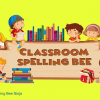Written assignments, such as essays or proposals, play an essential role in higher education. Writing each kind of college paper requires a unique set of competencies. Students who want to do well on a research project should have a broad knowledge base, strong verbal and logical thinking abilities, the capacity to adhere to a strict framework, and a polished style. Understanding the core principles of these writing approaches makes it simple to identify the most critical aspects of this kind of assignment: precision, coherence, and clarity. Keep reading to learn more about the finer points of research papers and helpful tips for composing them.
How To Define A Research Paper
Any research project delves deeply into a specific issue and presents evidence-based analysis, appraisal, or explanation. These assignments greatly emphasize referencing prior findings made by other authors. It may serve many purposes. For example, to get approval for your study, you’ll need to write out a research proposal outlining your plans in detail. You may always use assistance from writing services like buy college essay if you lack these skills and don’t want to risk. In such a case, it is crucial to assess your abilities properly. After all, the fate of your project may be at stake. Professional research help can save the day and show your ideas from the most beneficial angle. And later, you can use your perfect proposal writing example for future studies.
Progress would not be possible without the dissemination of knowledge via research papers, which constitute the backbone of today’s scientific community. College classes often utilize such documents to assess a student’s understanding of a specific field or their research abilities in general.
Structure: All You Need to Know
After we found out what is a research project, it’s time to move to the structure part. Depending on the type of your assignment, peculiarities might vary. But in any case, your paper will contain the following elements.
- Title, reflecting fundamental idea.
- A two- to four-sentence overview of the essay’s topic serves as its introduction.
- Body, explaining your main points. One must first properly and professionally expose the problems, state thoughts, and then discuss them.
- Conclusion. Here an author should summarize everything, drawing the major insights from the research.
The focus of the work depends on its type. To write a proposal, you must create a plan for data gathering, gauging, and analysis. So there will be some additional parts: context and questions, methods, and research significance. And how to write a research report? The issue or challenge at hand is what this paper is focused on. Here is where the study findings are highlighted in the first place. You can always find more pieces of advice for writing research papers in general and qualitatively strengthening your skills.
Writing Tips
We’ve compiled a list of valuable tips for empowering students for their research writing tasks. You may use this as general guidance to stay on track with your project, but some procedures may not be relevant to your specific assignment.
Know The Task
That may seem obvious to some, but you’d be amazed how many students begin writing a research paper before reading the instructions. Thus, you should start by reading the requirements and the question over again. Keep an eye out for specifics like page count, space, indentation, and citation format. Mind the little stuff, too, such as whether an abstract or a cover page is required.
Start With The Basics And Collect Data
It’s time for research. Discovering what prior writers have done on your issue can help you narrow it down and form a stronger statement. Doing preliminary research may clear up any questions one has. Also, it will point you in the direction of the finest resources. In most cases, you can locate relevant material online or in a university reading room.
Remember, it’s crucial to stick to reputable sources. When you look for information, keep in mind the distinction between the kinds of literature used for your paper. Articles and autobiographies written by the subject’s author are examples of primary sources. The assessments of certain work and third-party biographies written by others belong to the secondary category.
Come Up With A Thesis
Create a thesis statement that briefly describes the topic of your research paper based on your findings. In most cases, this will be the opening sentence of your work and serve as the intro to the subject. The ideal way to start a research paper is with a thesis statement. It must summarize the main points without giving away too much of the content. To help you get started writing, consider framing your issue as a question and responding to it.
Find the Proof
Getting down to the body part of the work is the next step in writing a paper. At this stage, you’ll go through the materials you gathered to date in search of the exact details. Read every source and make notes. Don’t get sidetracked by irrelevancies or superfluous backgrounds.
Citation cards are another typical study strategy alongside underlining and taking notes. Bibliography cards are not required, but they may empower learners and help students keep informed, particularly when preparing an overview.
Writing Part
Write each section according to the plan. Don’t stress about flawless grammar or spelling. Concentrate on getting all your thoughts down on paper. Refinement and editing can come later. Section transitions are a significant source of frustration while writing lengthy papers. Ensure that each paragraph’s start and end lines flow together nicely. It’s also essential to focus on your writing to achieve the best possible results.
Find Closing Thoughts
The purpose of a conclusion is to leave an impression on the reader. Start with a transition to the closing that is based on your thesis statement. So you may effectively conclude your argument. One other piece of advice has to do with the “so what” issue. Imagine your reader asked you that question. Going further into your reasoning, such a method might help you come up with a better closure. Returning to the text’s attention-getter at the paper’s end is common practice.
Conclusion
Teaching students how to write research works can be challenging. One should consider the proper structure and format, conduct thorough research, and express thoughts clearly and logically. Also, nobody canceled the need for perfect grammar, spelling, and bibliography. We hope our guide helps you level up your skills and write an excellent college paper.


